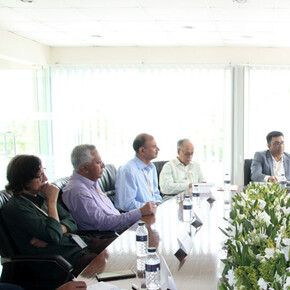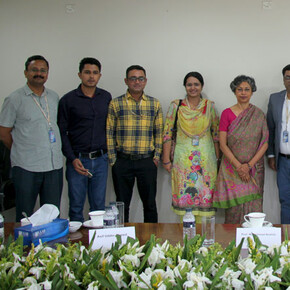Bangladesh Needs to Think Out of the Box for Sustainable Energy Transition
Professor Joyashree Roy, the inaugural Bangabandhu Chair Professor at the Asian Institute of Technology (AIT), Bangkok, today talked on ‘Multidimensionality of Challenges for a Fast Developing Country like Bangladesh in Sustainable Energy Transition’ at the University of Liberal Arts Bangladesh (ULAB), Dhaka. This interactive session, presided over by Prof. Shamsad Mortuza, Pro-Vice Chancellor, ULAB, was joined by senior and mid-level faculty members from all departments and centers of the university.
Prof. Roy, a member of the IPCC’s Nobel Peace Prize 2007 winning panel and the Coordinating Lead Author of WGIII (mitigation) of the Intergovernmental Panel on Climate Change (IPCC), set the tone by explaining the dire need for a sustainable energy shift from a fossil-fuel-based one to a renewable-energy one, especially under the Sustainable Development Goal (SDG) era. She explained why much focussed renewable sources, like solar, wind or bioenergy, would not be sufficient for Bangladesh in the coming decades for such transition. We need a “Just, Sustainable, Peaceful Transition”, and we need it fast, she emphasized. Drawing examples from nordic countries, she argued how transforming the natural gas and coal-exploitation-centered expertise and infrastructure of Bangladesh could be capitalized on building geothermal and hydrogen fuel capacity, and it has to be started with pilot demonstrations.
The exciting talk by Prof. Roy was followed by a vibrant discussion on pertinent technological, social, economic, and cultural issues. The conversation further explored the opportunities for Bangladeshi academics, researchers, and students to collaborate on joint research, to undertake academic activities, and to join capacity development with the AIT and other institutions and programs in the region on energy, climate change, SDGs, blue economy, and evidence-informed policy influencing.



